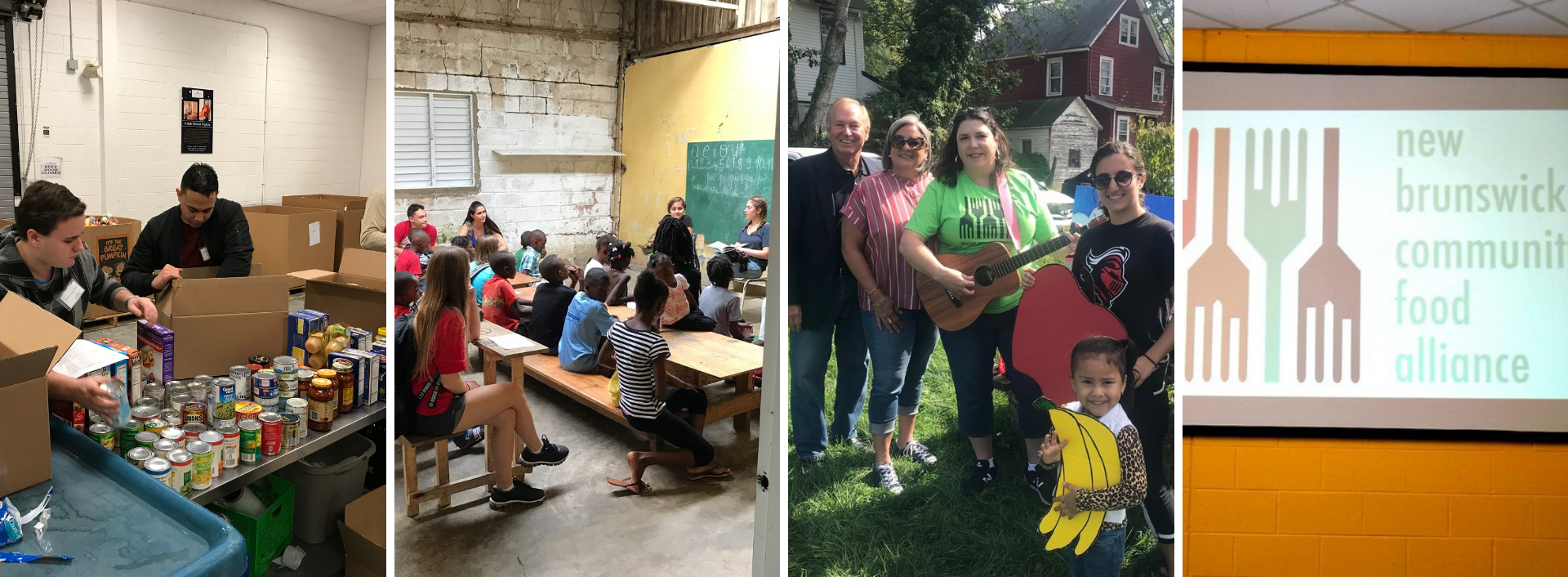Being creative about global education opportunities can be difficult during a global pandemic. But Dan Waite, Director of Rutgers Global–Study Abroad, isn’t daunted by the challenge, especially given the rich and diverse cultures brimming right here in New Jersey and surrounding areas. According to Waite, Rutgers has a long and rich tradition across its campuses of an educational approach that bridges global and local issues through local service, research, and study abroad—and doesn't necessarily require getting on an airplane.
It’s called “glocal learning” and starts with a simple equation: Global + Local = Glocal. “The term ‘glocal’ is defined as reflecting both local and global considerations,” explains Waite. “Our Rutgers tagline, ‘Jersey roots, global reach’ itself reflects a glocal ethos, which is really integral to a Rutgers University education.”
At Rutgers Global, “glocal learning” is defined as for-credit learning activities that combine both global and local perspectives. These activities may involve local programming, global exploration (study abroad), virtual online collaboration, or some combination of the three. The key is that, regardless of the mode of cross-cultural engagement, the pedagogical approach combines both local and global contexts and concerns.
Dr. Waite and his team at Study Abroad pulled together faculty from across all Rutgers campuses in August to present a Glocal Learning Symposium at Rutgers. “It was a way to share the work we are doing here at Rutgers, and also introduce what’s possible for our faculty partners,” said Waite.
Partners participating in the symposium included the Office of Global Initiatives and Experiential Learning, Rutgers-Newark; Language Engagement Project, Rutgers-New Brunswick; Office of International Students and Global Programs, Rutgers-Camden; and the Collaborative Center for Community-Based Research and Service, Rutgers-New Brunswick.
Clayton Walton from the Office of Global Initiatives and Experiential Learning, Rutgers-Newark discussed how the International Leadership Exchange teams at RU-N have completed more than 300 community-engaged service hours in partnership with 27 international nonprofit and public organizations. These teams are doing critical work, including installing solar suitcases in schools, community centers and health facilities across Africa, South Asia, Central America and the Caribbean. In addition, Walton talked about the GIEL Outdoor Education program, an interdisciplinary initiative designed to promote field study and experiential learning for students interested in engaging the natural world. This theory to practice initiative focuses on themes related to sustainable living, eco-immersion and community engaged leadership, with projects including Local to Global Sustainable Living and Local to Global Transformation Projects. Upcoming planned trips include Winter Wilderness Exploration in Maine and Sea Kayaking in the Everglades of Florida.
Joseph Hoffman, from the Rutgers-Camden Office of International Students and Global Programs, shared information about two programs they offer a “glocal” focus. The Study Away program consists of fall and spring semester courses that include a travel component within the United States during winter break, spring break, or in May. Rutgers faculty may opt to classify their courses as “Engaged Civic Learning,” signifying that the course integrates local civic engagement into the curriculum. The Global Citizen Project invites students to participate in a noncredit experience with service-learning opportunities in the city of Camden that relates to a culminating project abroad.
“This symposium made it clear that across Rutgers University, we are creating innovative learning options that bridge local and global to solve pressing world issues, increase access to global learning opportunities for all Rutgers students, and provide flexible global learning options in response to events like Covid-19.”
Rutgers Global is a resource for faculty colleagues who wish to create and implement glocal learning opportunities. Our team can assist faculty across the university with idea development, logistics and planning, recruitment and promotion, and billing. Interested faculty can contact Rocio Ruiz (rruiz@global.rutgers.edu) or Lauren Meregalli Ferrer (lmeregalliferrer@global.rutgers.edu). In addition, visit our Global Collaborative Education Lab webpage for more information.

